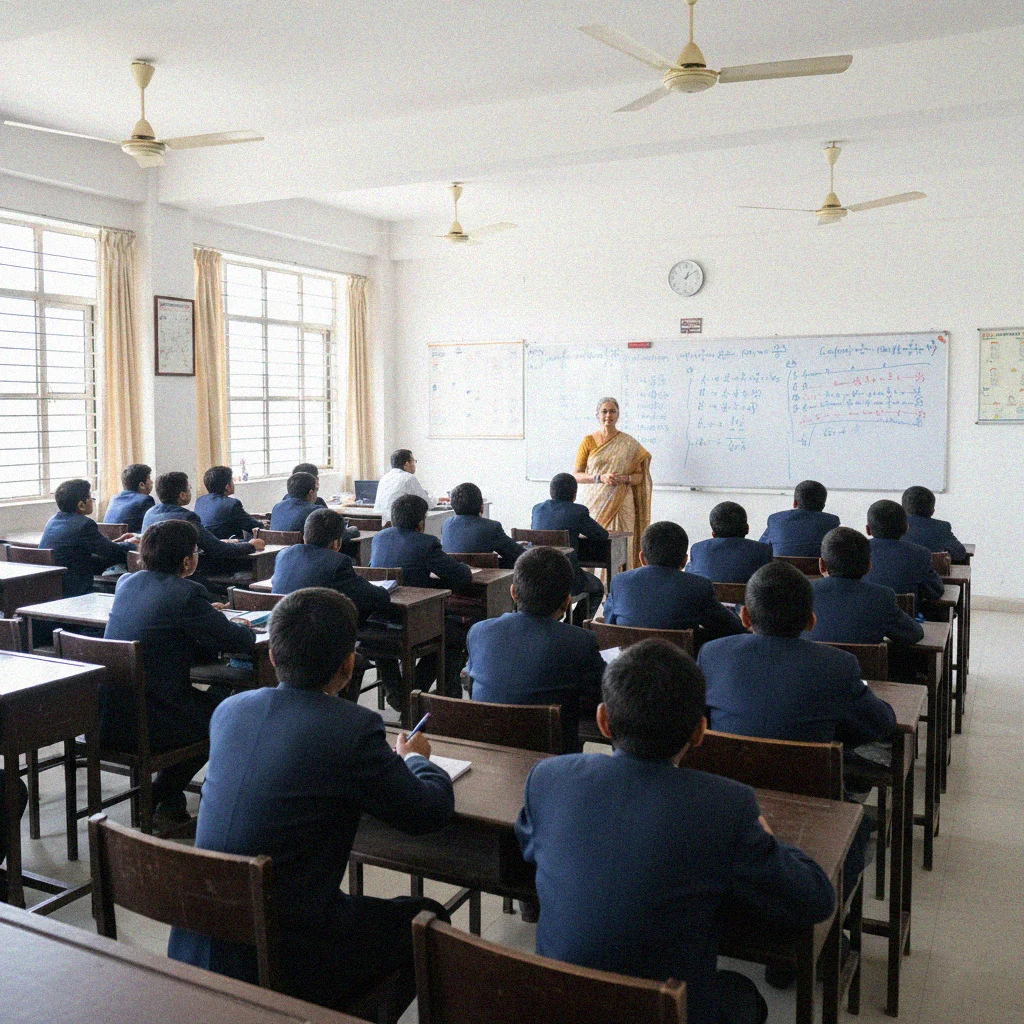Beyond Boundaries: Education as a Catalyst for Equality
-Dr. Nandita Pillai Krishnan
Introduction
In a world where education remains a transformative yet unevenly accessible resource, Dr. Nandita Pillai Krishnan has emerged as a pioneering figure advocating equity, inclusivity, and empowerment through learning. Honored with an Honorary Doctorate in Education and Social Transformation, Dr. Krishnan has dedicated her career to dismantling barriers, promoting inclusive educational frameworks, and leveraging knowledge as a tool for social justice.
Born in Chennai, India, to a family deeply invested in academia and social service, Nandita’s early environment reflected both intellectual curiosity and a profound sense of responsibility. Her father, a university professor, instilled analytical rigor and scholarly discipline, while her mother, a community activist, emphasized empathy, social consciousness, and civic engagement. This confluence of influences nurtured her understanding that education is not merely an instrument for personal advancement but a catalyst for equality and societal progress.
From a young age, Nandita exhibited exceptional academic aptitude, combined with an acute awareness of social inequities. She was drawn to initiatives supporting underprivileged children, literacy campaigns, and mentorship programs. This early exposure to educational disparities shaped her lifelong commitment to creating learning systems that are accessible, inclusive, and transformative.
Academically, she pursued an interdisciplinary path encompassing education, sociology, and policy studies, building a framework that combines research, practice, and advocacy. Over the years, Dr. Krishnan has led programs at grassroots, national, and international levels, emphasizing that educational innovation must intersect with equity, ethical leadership, and cultural understanding.
This biography traces her journey across five defining phases, each reflecting the growth, influence, and impact of her work. From early curiosity and community engagement to global thought leadership, these phases illustrate how sustained commitment, visionary strategies, and empathetic leadership can transform education into a powerful engine for equality.
Phase 1: Early Awareness and Grassroots Engagement
 Phase 1 of Dr. Nandita Pillai Krishnan’s journey was marked by curiosity, observation, and the early seeds of social consciousness. Growing up in Chennai, she witnessed the stark contrast between educational access for children in affluent neighborhoods and those in underserved communities. These disparities sparked a profound determination to understand, and eventually address, systemic barriers to learning.
Phase 1 of Dr. Nandita Pillai Krishnan’s journey was marked by curiosity, observation, and the early seeds of social consciousness. Growing up in Chennai, she witnessed the stark contrast between educational access for children in affluent neighborhoods and those in underserved communities. These disparities sparked a profound determination to understand, and eventually address, systemic barriers to learning.
Even as a young student, Nandita engaged in volunteer programs that brought tutoring, mentorship, and literacy initiatives to local communities. She helped organize reading circles, skill-development workshops, and awareness campaigns for girls’ education. Through these experiences, she learned that effective education requires more than instruction—it demands trust, empathy, and cultural sensitivity.
Her academic aptitude was evident early on. She excelled in science, mathematics, and humanities, demonstrating the rare ability to connect analytical reasoning with social insight. She conducted small research projects in her school, assessing literacy gaps and identifying solutions tailored to community contexts. These efforts, though modest, nurtured her understanding that grassroots initiatives can be powerful catalysts for systemic change.
Phase 1 also emphasized leadership and advocacy. Nandita began mentoring younger students, fostering collaborative learning, and creating inclusive spaces in classrooms. She cultivated skills in project design, community engagement, and cross-cultural communication, which would become hallmarks of her professional approach.
By the end of Phase 1, Nandita had internalized a central principle: education is a tool of empowerment only when it reaches the marginalized, the overlooked, and the underserved. These formative experiences laid the foundation for her academic pursuits, research focus, and advocacy in the subsequent phases of her career.
 Phase 2: Academic Pursuits and Intellectual Formation
Phase 2: Academic Pursuits and Intellectual Formation
Phase 2 marked Nandita’s formal academic development, where she combined rigorous scholarship with a focus on social justice in education. She pursued a Bachelor’s and Master’s in Education, followed by a PhD in Educational Policy and Equity Studies. Her research examined structural barriers in schooling systems, focusing on gender disparities, socioeconomic inequities, and access to inclusive pedagogy.
During this phase, Nandita demonstrated an extraordinary capacity to bridge theory and practice. She conducted field studies in rural and urban schools, analyzing not only enrollment statistics but also classroom dynamics, teacher-student interactions, and sociocultural factors influencing learning outcomes. Her findings highlighted that equitable education requires systemic reform, teacher empowerment, and community collaboration.
In addition to research, she actively engaged in academic leadership. Nandita founded the Equity in Education Forum, a platform for scholars, educators, and policymakers to discuss innovative solutions for inclusive schooling. The forum hosted workshops, policy discussions, and mentorship programs, emphasizing the translation of research into actionable strategies.
Phase 2 also involved experimental initiatives. Nandita implemented pilot programs that introduced technology-enabled learning, peer mentoring, and culturally responsive pedagogy in underserved schools. These initiatives not only improved academic outcomes but also fostered student confidence, engagement, and aspiration.
By the end of Phase 2, Dr. Krishnan had established herself as a scholar-practitioner, capable of generating research insights while implementing practical interventions. Her academic rigor, coupled with a commitment to inclusivity and justice, set the stage for her national and global impact in subsequent phases.
Phase 3: National Leadership and Policy Influence
 Phase 3 marked Dr. Nandita Pillai Krishnan’s transition from academic research and pilot programs to national-level leadership and policy influence. Recognizing that systemic change required structural reforms, she began collaborating with the Ministry of Education, state education departments, and national NGOs to promote inclusive, equitable, and high-quality education for all children.
Phase 3 marked Dr. Nandita Pillai Krishnan’s transition from academic research and pilot programs to national-level leadership and policy influence. Recognizing that systemic change required structural reforms, she began collaborating with the Ministry of Education, state education departments, and national NGOs to promote inclusive, equitable, and high-quality education for all children.
During this phase, Nandita played a pivotal role in developing frameworks for equitable curriculum design, teacher training, and resource allocation, ensuring that underserved communities were prioritized. She advocated for policies that addressed gender disparities, accessibility for children with disabilities, and support for first-generation learners. Her expertise ensured that these policies were evidence-based, culturally sensitive, and implementable at scale.
One of her most influential initiatives was the National Learning Equity Program (NLEP), which introduced mentorship networks, community engagement models, and digital learning tools to underserved schools. By connecting teachers, students, and parents, the program fostered collaborative learning environments that went beyond the traditional classroom model. The program’s success not only improved academic outcomes but also enhanced social inclusion and community participation.
Phase 3 also saw Nandita’s engagement with corporate social responsibility programs. She advised companies on education-focused CSR initiatives, emphasizing that private sector involvement could complement public policy to create scalable impact. Her work ensured that such programs were aligned with local needs, sustainable in design, and integrated with broader national education objectives.
Furthermore, she emphasized the importance of capacity-building and professional development for educators. She conducted workshops, developed training modules, and created mentoring systems to equip teachers with skills in inclusive pedagogy, socio-emotional learning, and technology integration. By empowering educators, Nandita strengthened the foundation of equitable education systems across India.
By the end of Phase 3, Dr. Krishnan had established herself as a national thought leader in education, influencing policies, programs, and practices that reached millions of children. Her work demonstrated that transformative educational leadership requires a blend of research, advocacy, and hands-on implementation, creating systems that are inclusive, resilient, and forward-looking.
Phase 4: Global Recognition and International Collaboration
 Phase 4 saw Dr. Nandita Pillai Krishnan extend her influence to the international arena, becoming a recognized advocate for inclusive education globally. Her expertise in equity, access, and pedagogical innovation drew invitations from organizations such as UNESCO, UNICEF, the World Bank, and the Global Partnership for Education.
Phase 4 saw Dr. Nandita Pillai Krishnan extend her influence to the international arena, becoming a recognized advocate for inclusive education globally. Her expertise in equity, access, and pedagogical innovation drew invitations from organizations such as UNESCO, UNICEF, the World Bank, and the Global Partnership for Education.
During this phase, she led cross-border initiatives that connected educational leaders, policymakers, and scholars to share best practices and develop innovative solutions. Her work emphasized that equitable education is a universal challenge, requiring collaboration, culturally responsive strategies, and evidence-driven interventions.
A hallmark achievement of this phase was the establishment of the Global Education Equity Network (GEEN), a collaborative platform linking educators, researchers, and NGOs across continents. GEEN facilitated exchange programs, joint research projects, and international mentoring opportunities, creating a knowledge ecosystem that amplified local innovations on a global scale.
Phase 4 also highlighted Dr. Krishnan’s role as a thought leader and public intellectual. She authored publications on inclusive pedagogy, digital learning equity, and social justice in education. She delivered keynote addresses at global summits, emphasizing the integration of policy, practice, and ethics to ensure that learning opportunities are accessible to all, irrespective of socioeconomic background or geographic location.
Her contributions during this phase were transformative, demonstrating that local solutions can inform global practices, and that educational equity is not merely a moral imperative but a strategic investment in societal resilience and human potential. By the end of Phase 4, Dr. Nandita Pillai Krishnan had become a globally respected advocate, influencing policy, practice, and thought leadership on multiple continents.
Phase 5: Legacy, Mentorship, and Transformative Vision
Phase 5 represents Dr. Krishnan’s dedication to institutionalizing her vision and mentoring future leaders in education. She founded the Pillai Krishnan Center for Educational Equity, an organization dedicated to research, mentorship, and advocacy for inclusive education worldwide. The center supports projects that enhance access, teacher capacity, and community engagement, ensuring sustainable impact at local, national, and international levels.
In this phase, Nandita focused heavily on mentorship, guiding hundreds of educators, policymakers, and social innovators. Her mentorship emphasized ethical leadership, equity-focused decision-making, and innovative problem-solving. Many of her mentees now lead transformative programs across the globe, carrying forward her philosophy that education is a tool for equality, empowerment, and societal transformation.
Phase 5 also consolidates her thought leadership through publications, advisory roles, and speaking engagements. She continues to advocate for systemic reforms, emphasizing that inclusive, high-quality education is the foundation for resilient and equitable societies. Her lifelong work reflects a holistic vision where research, policy, and practice converge to create learning environments that are just, empowering, and forward-looking.
By the end of Phase 5, Dr. Nandita Pillai Krishnan’s legacy was clear: she had created structures, networks, and opportunities that ensured education remains a catalyst for equality, inspiring generations of learners, educators, and leaders to push boundaries, challenge inequities, and build a more just world.
A Personal Thank You from Dr. Nandita Pillai Krishnan
“Reflecting on my journey, I am deeply grateful to the teachers, mentors, communities, and students who have inspired and guided me at every step. From my family, who instilled values of empathy and perseverance, to the educators and community leaders who trusted me to support their vision—your wisdom and dedication have been my constant inspiration.
To the young leaders, educators, and innovators: remember that education is more than learning; it is a powerful instrument of equality and transformation. Each initiative, every act of mentorship, and every decision to include the marginalized creates ripples of change far beyond the classroom.
I dedicate this recognition to all who strive to create inclusive, equitable, and empowering learning opportunities. Together, we can continue to break boundaries, amplify voices, and transform education into a true catalyst for equality.”
— Dr. Nandita Pillai Krishnan